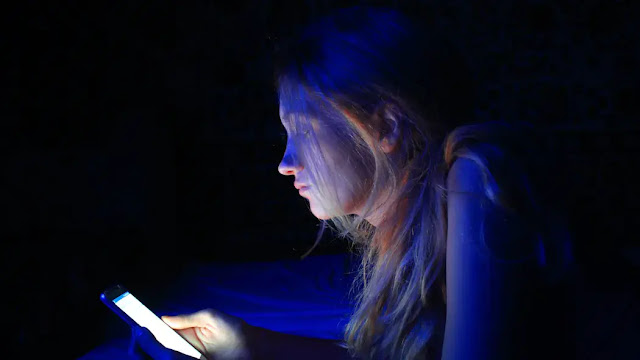Exposure to blue light in the evening would be a sign of poor night-time metabolism, according to a new Japanese study, which compared two types of lamps. The blue light could thus encourage weight gain.
If it is not recommended to expose ourselves to the blue light of our computer screens or smartphones in the evening, it is because it has been shown that it delays the secretion of melatonin, the sleep hormone. It would also harm the retina. But that's not all: according to a new Japanese scientific study, published on June 11, 2021 in the journal Scientific Reports, blue light would also change the metabolism of the body during sleep.
Researchers from the University of Tsukuba (Japan) compared the effects of light-emitting diodes (LEDs), widely adopted for their cost-effective properties, with organic light-emitting diodes (OLEDs) on the physical processes that occur during sleep.
Polychromatic white LEDs emit a large amount of blue light, which has been associated with many negative health effects, while OLEDs emit polychromatic white light that contains less blue light.
The researchers exposed 10 men to LEDs, OLEDs or dim light for 4 hours before sleep. The scientists then measured energy expenditure, core body temperature, fat oxidation and 6-sulfatoxymelatonin - which is a measure of melatonin levels - during sleep.
Verdict: "Although no effect on sleep architecture was observed, energy expenditure and core body temperature during sleep were significantly reduced after OLED exposure. In addition, fat oxidation during sleep was significantly lower after exposure to LED compared with OLED," Prof. Tokyuama, who led the study, detailed in a statement.
"Thus, light exposure at night is related to fat oxidation and body temperature during sleep. Our results suggest that specific types of light exposure may influence weight gain, as well as other physiological changes," Professor Tokuyama concluded.
The authors hope that their work will contribute to better selection of light sources, especially to improve the health of night workers.


0 Comments